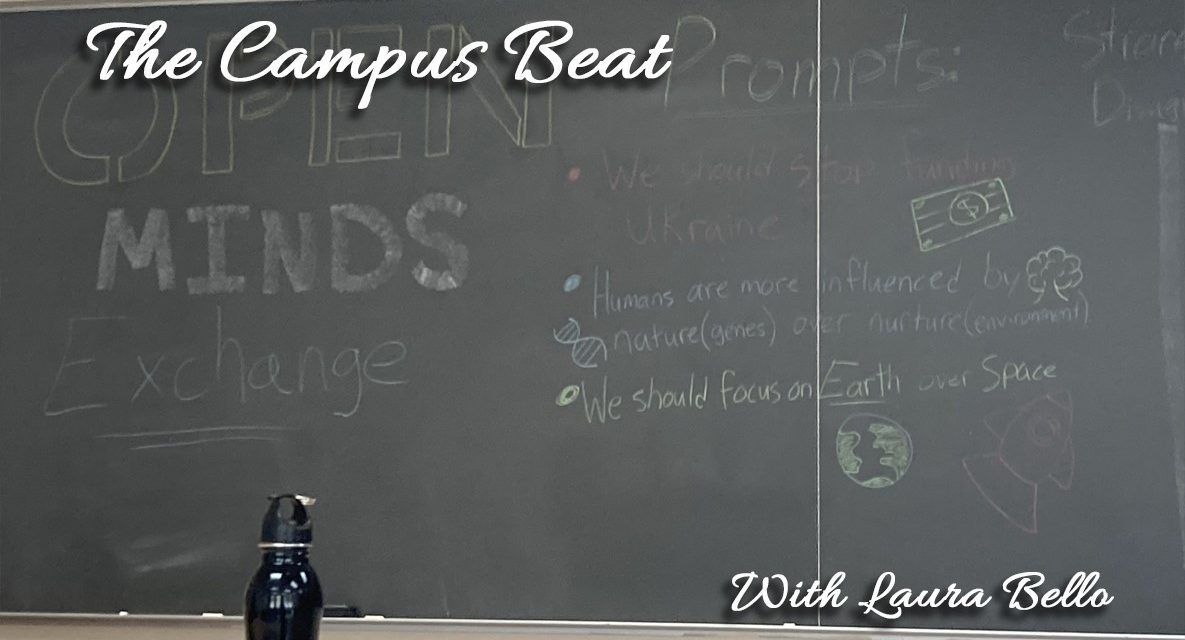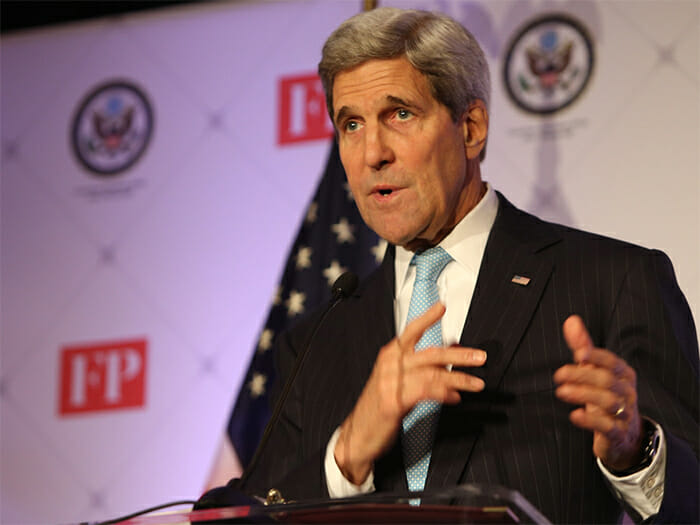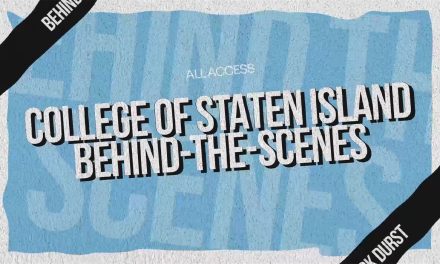Last week, my event coverage was something near and dear to my heart: a meetup with the Open Minds Exchange. For those out of the know, the Open Minds Exchange is one of our many clubs, in which members have a space to debate their opinions on various social, political, and miscellaneous topics. As a journalist intern, sharing my unique view on the world (mainly through writing) is something I’ve always enjoyed doing, being one of the only ways to get me to break my usual shyness and actually talk. Seeing as I hadn’t heard of the club beforehand, I sat down with the club’s president, Collin, and got the inside scoop on the Exchange before participating in a number of debates with the others present.
“The main goal is to host debates between the members of the student body,” he said. “We try to do it in a manner that’s conducive to civil dialogue–without aggression, that was my goal.” Keyword being civil, as one of my biggest struggles with sharing my opinions face to face is the eternal fear of upsetting people or causing fights to break out. I appreciate Collin’s priorities.
Collin then brought up his interest in street epistemology, which he helpfully defined specifically as “..the study of how we know what we know, it’s a field of philosophy. The whole goal of [street epistemology] is to make those philosophical tools accessible to everyday people…there was an emphasis on understanding why we came to our beliefs.” Like our professors are always emphasizing, a reputable source of knowledge is key to a well written/argued final product. I brought up the importance of admitting when you simply don’t know or don’t have enough prior knowledge to make an argument, a lesson in humility I would love to teach to a number people I’ve encountered.
With that, the games began! The blackboard had six lines drawn on it, labeled with “strongly disagree,” “disagree,” “neutral,” “agree,” and “strongly agree.” Participants stood in the middle in a neutral place, a question was asked, and we moved to the line representing our opinion on the matter. We were then asked to explain our reasoning. What I found more interesting is when Collin asked what it would take to change our minds, which is something I’ve never been asked before. The understanding that nothing is set in stone is another underrated virtue in the world of debate. Subjects during our meeting included the issue of nature vs. nurture, funding space exploration vs. focusing on our Earth, the effectiveness of “cancel culture,” and whether or not the U.S. should continually fund the war in Ukraine. I chimed in with my takes while constantly apologizing for my interruptions, for as much as I love to debate, I’m still pretty socially anxious. Consider me a walking contradiction.
After that totally fun but nerve-wracking experience, I interviewed a couple of the other participants to ask what led them to the Open Minds Exchange.
David, a Healthcare Management Major, said “The reason I chose to join Open Minds Exchange is to develop relationships, understand different viewpoints…build friendships, really.” Clubs can be a great way to find people of similar interests and make lifelong friends, and we all know how difficult that can be as you get older.
When I asked what led D’ondre to the club meeting, he said, “It was one of the first things posted on CSI Connect. I was interested in it because I was assuming it would be a bunch of people having an exchange of ideas, which it was.” I appreciate your honesty, D’ondre, and urge all students to check the site regularly for the latest happenings on campus, as well as information on clubs and organizations including the Open Minds Exchange and many more.
Finally, an anonymous member who was there from the first meeting of the Open Minds Exchange said “I think it’s a great way to express my ideas, express my thoughts.” I realized that not everyone is an open book, and it can take skill to properly form and articulate your opinions. I asked my interviewee about his experiences with this difficulty, and found his issues with “stammering and losing track of [his] thoughts” to be very relatable to my own experiences. Improving one’s public speaking skills can be an asset in the future, especially with job interviews, so the Open Minds Exchange can prove more practical than I initially realized.
Overall, the Open Minds Exchange was both a fun and informative experience for me, and I’m glad I got to attend.
By Laura Bello
















